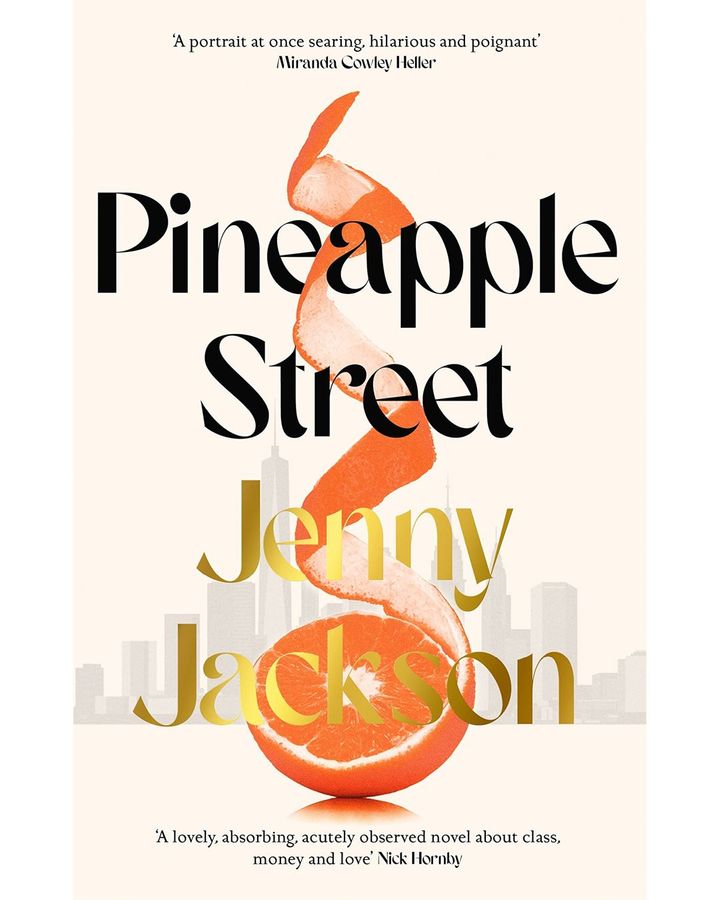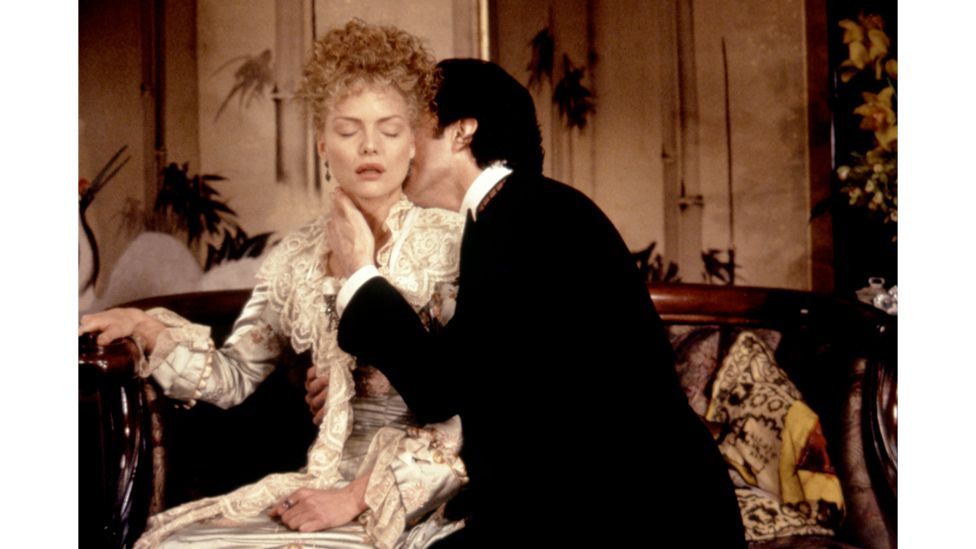A new wave of books is getting inside the intriguing inner sanctums of the mega-wealthy. Why do these stories fascinate generation after generation, asks Holly Williams.
The slogan "eat the rich", apocryphally attributed to Jean-Jacques Rousseau during the French Revolution, has seen quite the resurgence in recent years – becoming a rallying hashtag on TikTok and twitter, and used to describe a wave of films and TV shows that gleefully enact revenge on the super-wealthy. Think Succession (reaching its finale this weekend), Parasite, The Menu, Glass Onion, The White Lotus and Triangle of Sadness. To what extent these are firing shots in some new class war is highly debatable, but one thing is for sure: we absolutely eat up content about the rich. In fact, our hunger for such stories seems insatiable.
More like this:
- Why the super-rich love understated dressing
- 12 of the best books of the year so far
- The 10 most iconic jewels in history
The trend is by no means confined to the screen – interestingly, the Succession scripts have recently been published in book form by literary publisher Faber. And arguably novels are the ur-texts for our obsession with the rich and fabulous. Of course, this is partly because for their first couple of hundred years, most novelists had to be reasonably well-off to afford such a career. There's a reason so many pre-20th-Century "classics" are about the upper echelons of society, and it isn't just that readers find them fascinating.

In the TV series Succession, the generational wealth of the Roy clan is at the core of the drama (Credit: HBO)
But it is that, too – something that shows no sign of changing. Consider megahit books, inevitably turned into the glossiest of adaptations, like Crazy Rich Asians or Big Little Lies or even the Fifty Shades trilogy, as much wealth porn as any other kind. Recently, the TikTok-led Dark Academia trend has married elite educational environments and old-money outfits with a gothic vibe, and primarily takes cues from books: key texts include classics like Oscar Wilde's The Picture of Dorian Gray and Donna Tartt's The Secret History, alongside recent #BookTok bestsellers such as The Atlas Six by Olivie Blake or Ninth House by Leigh Bardugo.
I wanted to write about generational wealth, from generational perspectives – Jenny Jackson
Several of 2023's hotly-tipped novels are about the one per cent. A former private tutor to the kids of billionaires, Sarah Thomas takes us inside the world of Russian oligarchs in her debut Queen K, while Ellery Lloyd's new thriller The Club is set at an ultra-exclusive members' club on a private island, and has been picked for Reese Witherspoon's book club. But surely the year's most-hyped novel is Pineapple Street, the brilliant debut by the US editor-turned-author Jenny Jackson that's been dubbed a "delicious new Gilded Age family drama" by Vogue, and optioned for television.
The New York Times best-seller tells the story of the Stocktons, a WASPy family living in Brooklyn Heights, who made their considerable fortune in New York real estate. It walks a razor-fine line between satirising the Stocktons (sample dialogue: "Oh no! I left my Cartier bracelet in Lena's BMW and she's leaving soon for her grandmother's house in Southampton!"), and inviting us to empathise with them. Some readers may bristle at the mere idea of that – but anyone who opens Pineapple Street is likely to be completely absorbed. It's both sharply drawn and compassionate, and dangles the possibility that even the mega-rich can have their eyes opened to the moral questions around inherited wealth.
If it seems at odds with recent eat-the-rich content, well, that's deliberate. "We've seen the disgusting-rich-people milieu, and I'm not sure there's a ton of fresh digging to be done there," Jackson tells BBC Culture, speaking from New York via video call. She loves shows like Succession, but felt it was "maybe more interesting to look at people who were trying to be good – or who thought they were good – and who had to reckon with their privilege in different ways".
One major inspiration was an article in The New York Times about trust fund kids giving away their money. Jackson became fascinated by how this reckoning with the injustice of inherited wealth is happening in a much more mainstream way for Millennials and Gen Z than it did for previous generations, who might remain baffled – if not outright hostile – towards such egalitarian leanings.

In Jenny Jackson's novel, Pineapple Street, an outsider marries into an affluent New York family (Credit: Penguin)
"I'm 43, on the edge of Generation X and Millennial, and my attitude has always been: money seems cool, I would really like to have some! Literally that unexamined," Jackson admits with breezy candour. "Yet if you were in your 20s right now and had a trust fund, you would probably have complicated feelings about it. So I wanted to write about generational wealth, from generational perspectives."
Jackson's inspiration was also quite literally on her doorstep: living on Pineapple Street in Brooklyn Heights – albeit in a modest flat – she would snoop on more moneyed neighbours. "I was always walking past this apartment with these giant bay windows and a grand piano and those big Chinese urns – like, who lives there?"
In fact, Jackson was well-placed to imagine: while she may hail from middle-class, small-town Massachusetts, when she moved to New York she was thrust into a world of publishing parties and fancy lunches, as well as sharing an apartment with three investment bankers. These days, she gets insights into her neighbours via her children's pre-school: they recently held a fundraiser where one of the prizes was a child-sized Tesla. Let's just say, she's been keeping notes.
And this, surely, is a key part of the appeal of stories about the mega-rich: the joy of snooping. Whether we aspire to – or are repulsed by – extreme wealth, many of us can't resist a good gawp at its excesses – or its studiously understated "quiet luxury".
Rich-people narratives
At its most basic, the attraction of rich-people narratives can be the opportunity for pure, vacuous fantasy – the escapism of imagining what it would be like to be stinking rich. There's a reason many romance novels and steamy bonkbusters feature stupidly affluent heroes: why not dream about being swept into the lap of not only a lover, but also luxury?
But there's also something particularly tantalising about glimpsing into an elite world that is full of mysterious codes or strict hierarchies. Much of Pineapple Street is spent watching an outsider figure, Sasha, marrying into the family and experiencing "class shame" for getting things wrong. Jackson has a theory about why we're interested in etiquette: "I think we secretly believe we will one day be millionaires and so we should probably learn the codes so we're ready. It is a crazy idea, deeply-baked in part of our psyche."
Readers have long relished the chance to get an inside scoop on high society's rules and ruthlessness, the machinations of who's in or out, up or down. Social standing becomes a game (one that we might just secretly reckon we could win, if we only had the chance). An appetite for such drama is stoked everywhere from reality shows like Real Housewives or Below Deck to Jane Austen and Edith Wharton, Downton Abbey, Bridgerton and Queen Charlotte.
Depictions of the super-wealthy also spiked in novels about the 1980s – albeit in a rather more nasty and explosive form
It might also account for why so many novels about the upper echelons are told from the point of view of outsiders: think of Becky Sharp in Vanity Fair, Jane Eyre, Charles Ryder in Brideshead Revisited, the unnamed narrator of Rebecca, Nick Guest in The Line of Beauty, Richard Papen in The Secret History… Such protagonists function as a proxy for the ordinary reader, who can wonder how they'd fare in such situations. Who can see all the allure – but also all the problems.
Because there's a snarkier side to our consumption of these stories too: some readers also love to hate the rich. There's schadenfreude in seeing people who have all that money still being sad, bitter or empty. There's horrid glee at watching the nouveau riche being rejected despite being loaded. There's the principled stance – here is proof that no one should ever be allowed to be this rich! And there's the smug moral and aesthetic superiority, whereby we imagine that if we were that rich, at least we'd never be so entitled/ ungrateful/ crass/ unhappy (delete as appropriate).
"The love-to-hate emotion is complicated – and also the prevailing emotion in this whole genre," agrees Jackson. "It gives you that zing of moral superiority, that makes you feel like you've done something good – when really all you've done is sit on your butt and watch something."
Hate-watching is comforting, because we remind ourselves that money can't buy happiness. And this is a moral principle that has long been a staple in literature too. The seductions of a luxurious lifestyle are warned against in the likes of Great Expectations and Madame Bovary. The Great Gatsby may now be primarily associated with lavish partying, but the book suggests such excesses ultimately prove hollow.

Edith Wharton's classic novel The Age of Innocence focuses on the wealthiest of New York society in the 1870s, and was adapted for the screen in 1993 (Credit: Getty Images)
Depictions of the super-wealthy also spiked in novels about the 1980s – albeit in a rather more nasty and explosive form. In The Bonfire of the Vanities, Money, and American Psycho, Tom Wolfe, Martin Amis and Bret Easton Ellis respectively allow their reprehensible protagonists to embody the consumerist spirit of the age – greed is good – while exposing the chilling emptiness at its heart. Sherman McCoy, John Self and Patrick Bateman may make loadsamoney, but at enormous cost to their humanity.
What next, then, for novels of the minted minority? It's a question I put to Jackson, with her publishing hat on (she's vice president and executive editor at Knopf). Pineapple Street may have been an attempt to move on from the prevailing "aren't rich people just the worst?" narratives, but she doesn't necessarily see that as being the way the wind is blowing.
"I think as Millennial and Gen Z writers come of age, we're going to see a lot more people approach the subject from the Sally Rooney angle," she says – alluding to the fact that the wildly successful author is an avowed Marxist, who likes to have her often privileged characters dissect that privilege or discuss how to bring down capitalism.
"I think that rich people's feet will be held to flames," concludes Jackson – well, in fiction, at least.


Is he really rich
ReplyDelete